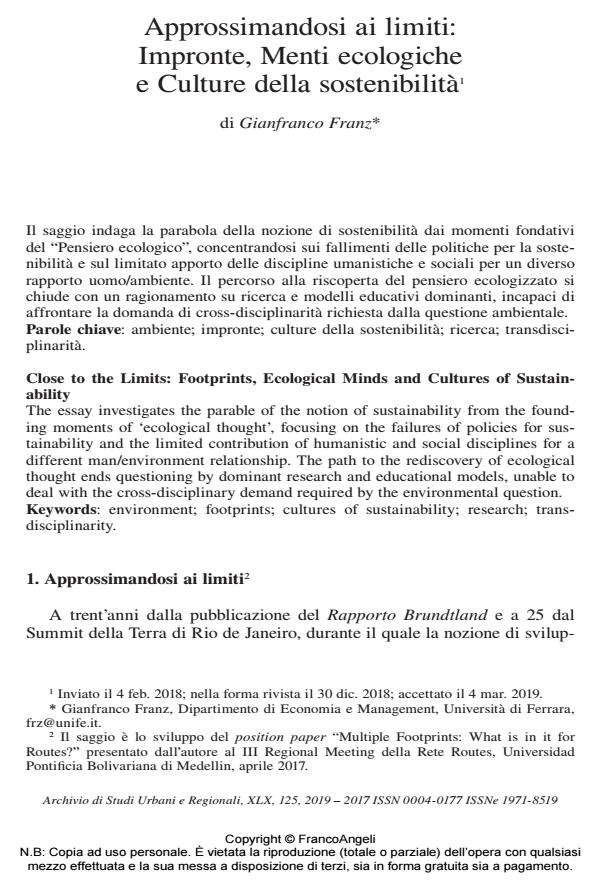Close to the Limits: Footprints, Ecological Minds and Cultures of Sustainability
Journal title ARCHIVIO DI STUDI URBANI E REGIONALI
Author/s Gianfranco Franz
Publishing Year 2019 Issue 2019/125
Language Italian Pages 21 P. 47-67 File size 145 KB
DOI 10.3280/ASUR2019-125003
DOI is like a bar code for intellectual property: to have more infomation
click here
Below, you can see the article first page
If you want to buy this article in PDF format, you can do it, following the instructions to buy download credits

FrancoAngeli is member of Publishers International Linking Association, Inc (PILA), a not-for-profit association which run the CrossRef service enabling links to and from online scholarly content.
The essay investigates the parable of the notion of sustainability from the founding moments of ‘ecological thought’, focusing on the failures of policies for sustainability and the limited contribution of humanistic and social disciplines for a different man/environment relationship. The path to the rediscovery of ecological thought ends questioning by dominant research and educational models, unable to deal with the cross-disciplinary demand required by the environmental question.
Keywords: Environment; footprints; cultures of sustainability; research; transdisciplinarity
Gianfranco Franz, Approssimandosi ai limiti: Impronte, Menti ecologiche e Culture della sostenibilità in "ARCHIVIO DI STUDI URBANI E REGIONALI" 125/2019, pp 47-67, DOI: 10.3280/ASUR2019-125003